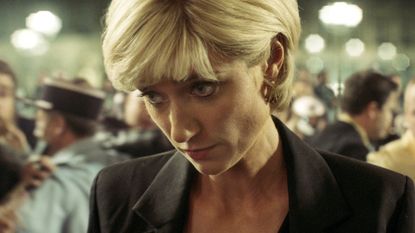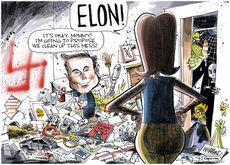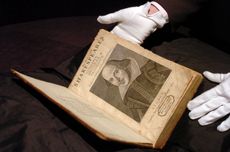The Crown: how a TV hit lost its shine
Critics of the new season have called it 'crass', 'pointless' and a 'new low'

Once, it was regarded as a stately piece of "prestige" TV, said Michael Hogan in The Guardian. Seven years on, Peter Morgan's "The Crown" is a "trashy", unwittingly comical melodrama that borders on exploitative. Critics of the new season, which covers the death of Diana, Princess of Wales, have called it "crass", "pointless", and a "new low". Let's just say the reviews have been "mixed". So what went wrong? One problem is that when the show started in 2016, few viewers knew a great deal about the postwar events being dramatised, or had strong views about them, and many of the people involved were dead. "The Crown" was part lavishly produced soap opera, "part history lesson". But with each season since then, it has got closer to the present day – and that has caused mounting controversy.
Unfortunately, this has coincided with a steady decline in the drama's quality. It has got a bit desperate, agreed Anita Singh in The Daily Telegraph. In this final season, "The Crown" completes its "demolition job" of the late Queen, who has moved from intelligent young woman (Claire Foy) to unfeeling "old boot" (Imelda Staunton). As for Diana, she has become so integral, Morgan can't let her go: after the crash in Paris (which we do not see), she appears in ghostly form to Prince Charles – "Ta-da" – to praise him for crying over her body. "Thank you for how you were in the hospital," says Dead Diana. "So raw. Broken. And handsome. I'll take that with me." What an odd thing to write. Yet it's typical of the dialogue, said Lucy Mangan in The Guardian, much of which is "the very definition of typing-not-writing".
There is stuff to enjoy in the series, said Camilla Long in The Sunday Times. Elizabeth Debicki perfectly captures Diana, though Morgan has so sanctified the princess that she is a bit dull ("landmine survivors are frequently rejected by their communities"); and Salim Daw makes an amusingly villainous Mohamed Al Fayed (he is dead, so he can't sue). But the public events are so familiar, the plot has to be driven by private ones (including conversations between Diana and Dodi) that are highly speculative, said Nick Hilton in The Independent. "The Crown" now feels less historical drama than "tittle-tattle".
Subscribe to The Week
Escape your echo chamber. Get the facts behind the news, plus analysis from multiple perspectives.

Sign up for The Week's Free Newsletters
From our morning news briefing to a weekly Good News Newsletter, get the best of The Week delivered directly to your inbox.
From our morning news briefing to a weekly Good News Newsletter, get the best of The Week delivered directly to your inbox.
Sign up to The Week's Arts & Life newsletter for reviews and recommendations.

Continue reading for free
We hope you're enjoying The Week's refreshingly open-minded journalism.
Subscribed to The Week? Register your account with the same email as your subscription.
Sign up to our 10 Things You Need to Know Today newsletter
A free daily digest of the biggest news stories of the day - and the best features from our website
-
 5 X-plosive cartoons about Elon Musk
5 X-plosive cartoons about Elon MuskCartoons Artists take on his proposed clean-up of X, his views on advertisers, and more
By The Week US Published
-
 2023: the year of superhero fatigue
2023: the year of superhero fatigueThe Explainer The year may represent the end of an era for Hollywood
By Brendan Morrow, The Week US Published
-
 Recipe: roast garlic mushrooms with parsley and eggs by Gelf Alderson
Recipe: roast garlic mushrooms with parsley and eggs by Gelf AldersonThe Week Recommends A simple and classic breakfast combination
By The Week UK Published
-
 Recipe: roast garlic mushrooms with parsley and eggs by Gelf Alderson
Recipe: roast garlic mushrooms with parsley and eggs by Gelf AldersonThe Week Recommends A simple and classic breakfast combination
By The Week UK Published
-
 Shein: the biggest Wall Street float of 2024?
Shein: the biggest Wall Street float of 2024?Speed Read Clothing industry disruptor is about to test its acceptability on the US stock market
By The Week UK Published
-
 A Neolithic marvel in southeast Turkey
A Neolithic marvel in southeast TurkeyThe Week Recommends A trip to Göbekli Tepe offers visitors the chance to explore nearby Sanlıurfa
By The Week UK Published
-
 Shakespeare's First Folio: 400 years in print
Shakespeare's First Folio: 400 years in printThe Explainer First published in 1623, seven years after his death, the weighty tome includes Macbeth, Antony and Cleopatra, Julius Caesar
By The Week UK Published
-
 Properties of the week: stunning houses for winter sun
Properties of the week: stunning houses for winter sunThe Week Recommends Featuring a beachfront cottage in Grand Cayman and a villa in Costa Rica with sea and jungle views
By The Week UK Last updated
-
 Blavatnik Galleries review: how art is war's 'most truthful witness'
Blavatnik Galleries review: how art is war's 'most truthful witness'The Week Recommends New space displays some of the Imperial War Museum's finest art, film and photography
By The Week UK Last updated
-
 6 welcoming homes great for family gatherings
6 welcoming homes great for family gatheringsFeature Featuring a home with 13 fireplaces in Maine and a home with heated brick floors in New Mexico
By The Week US Published
-
 Nikki Vargas' 6 favorite memoirs about new adventures
Nikki Vargas' 6 favorite memoirs about new adventuresFeature The senior editor recommends works by Tembi Locke, Cheryl Strayed and more
By The Week US Published









